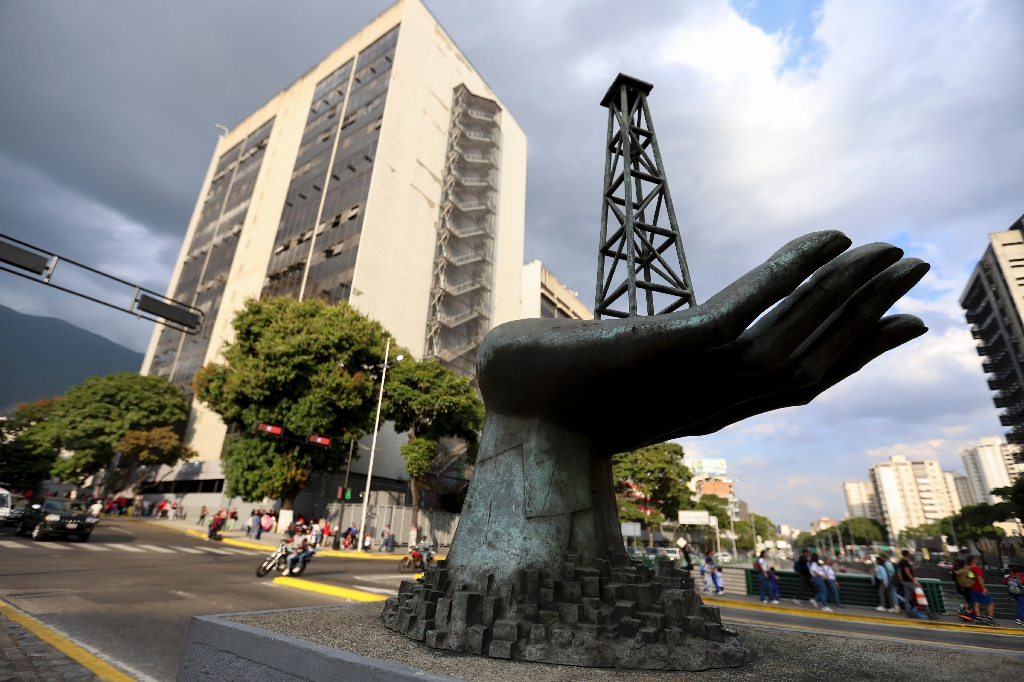New York (AFP) – Boeing Chief Executive Dave Calhoun took responsibility on Tuesday for a near-catastrophic Alaska Airlines incident last week, vowing “complete transparency” as the aviation giant tries to pivot from its latest crisis.
“We’re going to approach this (by) number one acknowledging our mistake,” Calhoun told employees at a safety meeting called after Friday’s emergency landing, which came after one of the plane’s panels blew out mid-flight.
“We’re going to approach it with 100 percent and complete transparency every step of the way,” he said.
Calhoun, who ascended to Boeing’s top post in January 2020 as the company reeled from two fatal crashes on the 737 MAX, committed to working with the National Transportation Safety Board (NTSB), which is probing the incident.
The NTSB is “as good as it gets,” Calhoun said, according to remarks released by the company.”
I trust every step they take, and they will get to a conclusion.”
US regulators have grounded 171 737 MAX 9 planes with the same configuration as the Alaska Airlines jet.
The affected panel, a door plug, is used to fill an unneeded emergency exit in planes.
NTSB investigators suggested Monday night that the part was not affixed adequately.
On Tuesday, the Federal Aviation Administration (FAA) said it was still working with Boeing to finalize detailed inspection instructions for grounded planes.
“Boeing offered an initial version of instructions yesterday which they are now revising because of feedback received in response,” the FAA said Tuesday.
“Upon receiving the revised version of instructions from Boeing the FAA will conduct a thorough review.”
Boeing said it is in contact with customers and the FAA on requirements.
“As part of the process, we are making updates based on their feedback and requirements,” a spokesman said
.
– Apology – The back-and-forth on inspections comes after both United Airlines and Alaska Airlines reported Monday finding loose hardware on some of their Boeing 737 MAX 9 planes during preliminary inspections undertaken since Friday’s incident.
Hundreds of flights have been canceled due to the grounding of a fraction of the MAX fleet.
Alaska Airlines apologized to inconvenienced consumers in a post on X, formerly Twitter.
“We understand that travel plans have been impacted, and we are doing everything possible to minimize the disruption,” Alaska posted, reiterating that it is awaiting further direction from Boeing and the FAA.
“Until then, the fleet will remain grounded,” Alaska Airlines said.
The crisis has heaped renewed pressure on Boeing, which has struggled to completely find its footing since the earlier MAX crashes led to a lengthy grounding of the jets.
Boeing has struggled with supply chain and quality control problems since the MAX returned to service, limiting its output and hitting its bottom line.
The company’s stock price has dropped over nine percent since Friday’s incident.
Aviation analysts said the issue appeared to be a quality control defect rather than a design issue akin to the problem with a flawed flight handling system involved in two fatal MAX crashes in 2018 and 2019.
“It’s just bad — sloppy work like this,” said Michel Merluzeau, an aeronautics specialist with consulting firm AIR.”
It’s an indication of something going through the safety net at Boeing, for whatever reason.”
Boeing meanwhile reported on Tuesday it had delivered 44 737 MAX jets in December, reaching a total of 396 of the jets for all of 2023.
That was within Boeing’s target, which the company lowered to 375 to 400 from an earlier range of 400-450.
Boeing reported delivering 528 jets in all last year, up from 480 in 2022.However, deliveries stand far below the 806 in 2018 prior to the lengthy MAX grounding.




